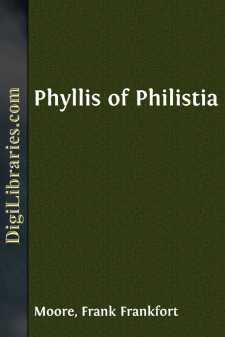Categories
- Antiques & Collectibles 13
- Architecture 36
- Art 48
- Bibles 22
- Biography & Autobiography 816
- Body, Mind & Spirit 145
- Business & Economics 28
- Children's Books 17
- Children's Fiction 14
- Computers 4
- Cooking 94
- Crafts & Hobbies 4
- Drama 346
- Education 58
- Family & Relationships 59
- Fiction 11834
- Foreign Language Study 3
- Games 19
- Gardening 17
- Health & Fitness 34
- History 1378
- House & Home 1
- Humor 147
- Juvenile Fiction 1873
- Juvenile Nonfiction 202
- Language Arts & Disciplines 89
- Law 16
- Literary Collections 686
- Literary Criticism 179
- Mathematics 13
- Medical 41
- Music 40
- Nature 179
- Non-Classifiable 1768
- Performing Arts 7
- Periodicals 1453
- Philosophy 66
- Photography 2
- Poetry 897
- Political Science 203
- Psychology 45
- Reference 154
- Religion 516
- Science 126
- Self-Help 85
- Social Science 82
- Sports & Recreation 34
- Study Aids 3
- Technology & Engineering 59
- Transportation 23
- Travel 463
- True Crime 29
Our website is made possible by displaying online advertisements to our visitors.
Please consider supporting us by disabling your ad blocker.
Phyllis of Philistia
Categories:
Description:
Excerpt
AN ASTRONOMER WITHOUT A TELESCOPE.
"After all," said Mr. Ayrton, "what is marriage?"
"Ah!" sighed Phyllis. She knew that her father had become possessed of a phrase, and that he was anxious to flutter it before her to see how it went. He was a connoisseur in the bric-a-brac of phrases.
"Marriage means all your eggs in one basket," said he.
"Ah!" sighed Phyllis once more. She wondered if her father really thought that she would be comforted in her great grief by a phrase. She did not want to know how marriage might be defined. She knew that all definitions are indefinite. She knew that in the case of marriage everything depends upon the definer and the occasion.
"So you see there is no immediate cause to grieve, my dear," resumed her father.
She did not quite see that this was the logical conclusion of the whole matter; but that was possibly because she was born a woman, and felt that marriage is to a woman what a keel is to a ship.
"I think there is a very good cause to grieve when we find a man like George Holland turning deliberately round from truth to falsehood," said Phyllis sternly.
"And what's worse, running a very good chance of losing his living," remarked the father. "Of course it will have to be proved that Moses and Abraham and David and the rest of them were not what he says they were; and it strikes me that all the bench of bishops, and a royal commissioner or two thrown in, would have considerable difficulty in doing that nowadays."
"What! You take his part, papa?" she cried, starting up. "You take his part? You think I was wrong to tell him—what I did tell him?"
"I don't take his part, my dear," said Mr. Ayrton. "I think that he's a bit of a fool to run his head into a hornet's nest because he has come to the conclusion that Abraham's code of morality was a trifle shaky, and that Samson was a shameless libertine. Great Heavens! has the man got no notion of the perspective of history?"
"Perspective? History? It's the Bible, papa!"
Indignation was in Phyllis' eyes, but there was a reverential tone in her voice. Her father looked at her—listened to her. In the pause he thought:
"Good Heavens! What sort of a man is George Holland, who is ready to relinquish the love and loveliness of that girl, simply because he thinks poorly of the patriarchs?"
"He attacks the Bible, papa," resumed Phyllis gravely. "What horrible things he said about Ruth!"
"Ah, yes, Ruth—the heroine of the harvest festival," said her father. "Ah, he might have left us our Ruth. Besides, she was a woman. Heavens above! is there no chivalry remaining among men?"
"Ah, if it was only chivalry! But—the Bible!"
"Quite so—the—yes, to be sure. But don't you think you may take the Bible too seriously, Phyllis?"
"Oh, papa! too seriously?"
"Why not? That's George Holland's mistake, I fear. Why should he work himself to a fury over the peccadillos of the patriarchs? The principle of the statute of limitations should be applied to such cases. If the world, and the colleges of theology, have dealt lightly with Samson and David and Abraham and Jacob and the rest of them for some thousands of years, why should George Holland rake up things against them, and that, too, on very doubtful evidence?...


